Consumption Fuel

What is the average fuel consumption of a typical fuel vehicle ?
The average fuel consumption of a typical fuel vehicle can vary depending on several factors such as the type of vehicle, driving conditions, and maintenance. However, we can provide a general overview of the fuel consumption rates for different types of vehicles: - Small cars typically have better fuel efficiency than larger vehicles, with an average fuel consumption of around 6-8 liters per 100 kilometers (L/100km). - Midsize cars usually have slightly higher fuel consumption rates compared to small cars, with an average fuel consumption of around 8-10 L/100km. - Large cars generally have higher fuel consumption rates due to their larger size and weight, with an average fuel consumption of around 10-12 L/100km. - Small SUVs are becoming increasingly popular and offer relatively good fuel efficiency, with an average fuel consumption of around 9-11 L/100km. - Midsize SUVs are larger and heavier than small SUVs, resulting in higher fuel consumption rates, with an average fuel consumption of around 11-13 L/100km. - Large SUVs are the largest and heaviest vehicles in this category, leading to higher fuel consumption rates, with an average fuel consumption of around 13-15 L/100km. - Light duty pickups are designed for carrying light loads and offer reasonable fuel efficiency, with an average fuel consumption of around 12-14 L/100km. - Medium duty pickups are larger and more powerful than light duty pickups, resulting in higher fuel consumption rates, with an average fuel consumption of around 14-16 L/100km. - Heavy duty pickups are designed for heavy-duty tasks and have the highest fuel consumption rates among pickup trucks, with an average fuel consumption of around 16-18 L/100km. It's important to note that these figures are just estimates and actual fuel consumption can vary based on individual driving habits, vehicle condition, and other factors. Additionally, newer vehicles with advanced technology may have lower fuel consumption rates than older models.
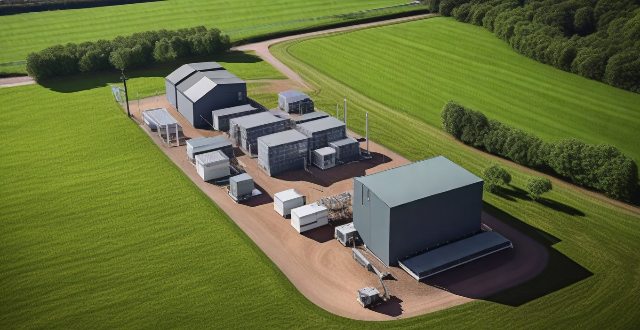
How efficient is a Compound Hybrid Electric Vehicle in terms of fuel consumption ?
Compound Hybrid Electric Vehicles (CHEVs) are efficient in terms of fuel consumption due to their dual power sources, regenerative braking, advanced energy management system, aerodynamic design, and weight reduction.

What impact does energy-efficient transportation have on reducing fuel consumption ?
Energy-efficient transportation has a significant impact on reducing fuel consumption, which can lead to numerous benefits for the environment, economy, and society as a whole. These benefits include improved fuel efficiency, lower emissions, increased energy security, health benefits, and environmental conservation. By using vehicles and systems designed to minimize energy usage while maximizing performance, individuals and organizations can reduce their fuel consumption and save money on fuel costs over time. Additionally, reducing fuel consumption can lead to lower emissions of harmful pollutants and greenhouse gases, improving air quality and mitigating the effects of climate change. Investing in energy-efficient transportation can create new jobs and stimulate economic growth in industries related to clean energy and technology. Improving air quality through reduced emissions from energy-efficient transportation can have significant health benefits for people living in urban areas, reducing healthcare costs associated with treating respiratory problems and heart disease. Finally, reducing fuel consumption through energy-efficient transportation can help to conserve natural resources and protect ecosystems, preserving them for future generations.
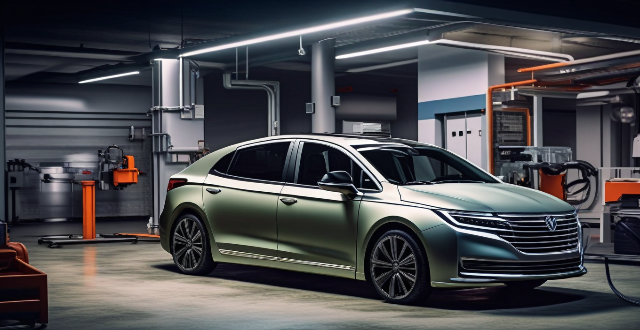
Are diesel hybrid cars more fuel-efficient than regular diesel cars ?
Diesel hybrid cars are more fuel-efficient than regular diesel cars due to the combination of a diesel engine and an electric motor, which optimizes fuel consumption and reduces emissions. They offer improved fuel efficiency, lower emissions, and better performance compared to traditional diesel vehicles.

What role does public transportation play in reducing fuel consumption and emissions ?
Public transportation plays a pivotal role in reducing fuel consumption and emissions by offering efficient travel solutions, promoting environmentally friendly practices, and influencing urban planning. It allows for higher passenger capacity and optimized routes, reduces car dependence, adopts low-emission vehicles, and contributes to compact city design and land use efficiency. Supporting public transportation systems is crucial for achieving sustainability goals.
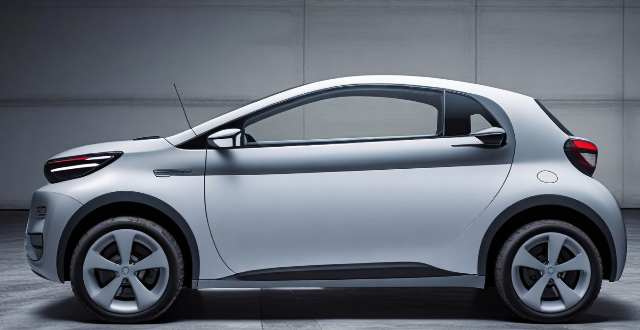
How has the design of fuel vehicles evolved over the years ?
The evolution of fuel vehicle design has been marked by significant changes and innovations over the years. From horse-drawn carriages to modern electric cars, each new development has brought its own set of benefits and challenges. Key milestones in this evolution include the introduction of steam-powered vehicles during the Industrial Revolution, the invention of gasoline-powered vehicles in 1885, the rise of diesel engines in the early 20th century, and the recent resurgence of electric cars. Looking ahead, we can expect further advancements in autonomous driving technology, hydrogen fuel cells, and biofuels made from renewable sources.

What is the fuel efficiency of a hybrid car ?
Hybrid cars are more fuel-efficient than traditional gasoline-powered vehicles, with an average range of 40-50 mpg in city driving and 35-45 mpg on the highway. This increased efficiency offers benefits such as reduced fuel costs, lower emissions, longer engine life, and potential tax incentives. If you're looking for a more environmentally friendly and cost-effective way to get around, consider purchasing a hybrid car.

What are the benefits of sustainable consumption ?
The text discusses the benefits of sustainable consumption, which include environmental protection, economic benefits, social well-being, and ethical considerations. By making conscious choices about what we consume and how we dispose of our waste, we can reduce our carbon footprint, conserve natural resources, preserve biodiversity, save costs, create jobs, promote healthier lifestyles, ensure equitable distribution of resources, build community, protect animal welfare, support fair trade, and encourage transparency and accountability in businesses. Sustainable consumption is crucial for creating a more sustainable future for ourselves and future generations.

How can we promote sustainable consumption ?
Sustainable consumption is a key factor in achieving a sustainable future. It involves making conscious choices about the products we buy, the resources we use, and the impact we have on the environment. Here are some ways to promote sustainable consumption: 1. Education and Awareness: Raise awareness about the importance of sustainable consumption; provide information on sustainable products and services; encourage responsible consumption habits. 2. Government Policies and Incentives: Implement policies that support sustainable consumption; offer incentives for sustainable practices; encourage circular economy principles. 3. Corporate Responsibility and Innovation: Encourage corporate responsibility; foster innovation in sustainable products and services; collaborate with stakeholders. 4. Community Action and Collaboration: Organize community events; create networks of sustainable businesses; engage with schools and youth organizations. By taking these actions at individual, community, business, and government levels, we can collectively move toward a more sustainable future where our consumption patterns support rather than harm the planet.

What role do fossil fuel companies play in climate change denial ?
Fossil fuel companies contribute to climate change denial through financial interests, lobbying, and disseminating misinformation. They fund think tanks, engage in advertising campaigns, and influence politics to protect their profits and shape public opinion against strict environmental regulations. This resistance hinders effective action on climate change.

How does ecological design address issues related to water management and consumption ?
Ecological design addresses water management and consumption issues through strategies such as rainwater harvesting, water recycling, using native plants in landscaping, installing efficient water fixtures, permeable paving, smart water management systems, and promoting education on water conservation.
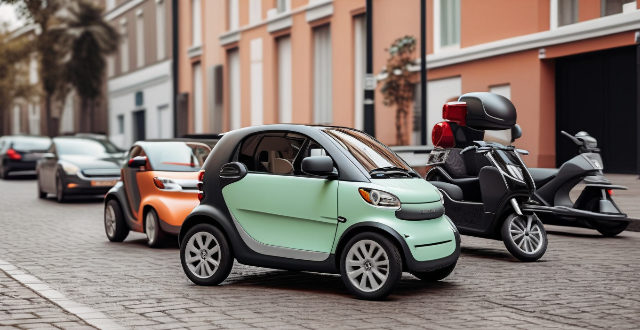
How does the performance of fuel vehicles differ from that of electric cars ?
The performance differences between fuel vehicles and electric cars are significant in terms of acceleration, refueling/charging, emissions, maintenance, and noise/vibration. Electric cars offer faster acceleration, lower maintenance needs, and cleaner operation but may require longer charging times and have limited charging infrastructure compared to the widespread availability of gas stations for fuel vehicles. The choice between the two often depends on personal preferences, lifestyle needs, and environmental considerations.

How does the maintenance cost of fuel vehicles compare to that of electric cars ?
The text discusses the comparison of maintenance costs between fuel vehicles and electric cars. It mentions that fuel vehicles typically require regular maintenance such as oil changes, air filter replacements, and spark plug checks. On the other hand, electric cars generally require less frequent maintenance than fuel vehicles. They do not have traditional engine oil, so oil changes are not necessary. However, they still require regular checks on the battery, brakes, and suspension system. Fuel vehicles often require more frequent maintenance due to their complex internal combustion engines and various fluids that need to be changed regularly. This includes oil changes every few thousand miles, as well as other routine services like brake pad replacements and tire rotations. Electric cars typically require less frequent maintenance because they have simpler drivetrains with fewer moving parts. Battery health is an important aspect of electric car maintenance, but it generally does not require as many check-ups as a traditional engine would. The cost of parts and labor for fuel vehicles can vary widely depending on the make and model of the vehicle, as well as the specific services required. However, fuel vehicles often have more expensive repairs due to their complexity and the number of moving parts involved. While electric cars may initially have higher upfront costs for batteries and specialized components, their maintenance costs tend to be lower in the long run because they require less frequent servicing and have fewer parts that need replacing.

What are the challenges to achieving sustainable consumption ?
The text discusses the various challenges to achieving sustainable consumption, including lack of awareness and education, economic barriers, cultural and social norms, infrastructure and accessibility issues, technological limitations, policy and regulatory challenges, business practices, and consumer behavior. It emphasizes the need for a multifaceted approach involving education, policy changes, technological advancements, and cultural shifts towards more sustainable consumption patterns to overcome these challenges and move towards a more sustainable future for all generations.

How do hydrogen fuel cells work and are they a practical alternative energy source ?
Hydrogen fuel cells are devices that convert the chemical energy of hydrogen into electricity. They consist of an anode, cathode, electrolyte, and external circuit. The process involves splitting hydrogen into protons and electrons at the anode, moving protons through the electrolyte, moving electrons through the external circuit, combining protons and electrons with oxygen at the cathode to form water, and producing heat. Hydrogen fuel cells are renewable, have high energy density, zero emissions, and versatile applications. However, they face challenges such as high cost, limited infrastructure, and safety concerns.

Can reducing meat consumption lower my carbon footprint ?
Reducing meat consumption can lower your carbon footprint by decreasing the demand for livestock, which produces greenhouse gases and requires significant resources. This dietary change also conserves water and land, improves health, and supports a more sustainable food system.

What role do consumers play in promoting sustainable consumption ?
The article explores the role of consumers in promoting sustainable consumption. It emphasizes the importance of education and awareness, reducing waste, reusing items, recycling materials, supporting sustainable businesses, and advocating for change as key strategies for consumers to contribute to sustainable consumption. The article highlights the significance of these strategies in reducing environmental impact and conserving resources for a more sustainable future.
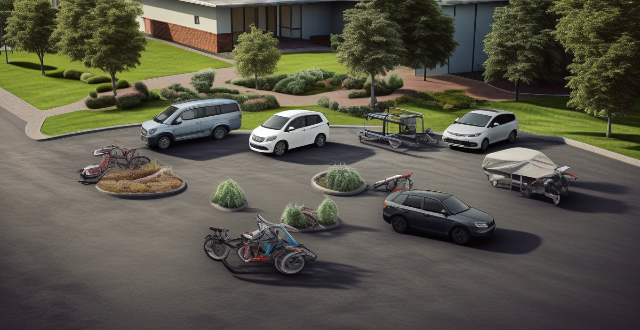
What is the impact of fuel vehicles on global oil demand ?
The widespread use of fuel vehicles, especially those poweredThe widespread use of fuel vehicles, especially those powered engines, has significantly influenced global This increased consumption of petroleum-based fuels has led to economic implications such as price fluctuations and dependence on imports, as well as environmental challenges like greenhouse gas emissions and air pollution. Alternatives to fuel vehicles, including electric and hybrid vehicles, public transportation, and active mobility options, offer potential solutions to reduce our reliance on oil and mitigate these negative impacts.

What is the impact of smart manufacturing on industrial energy consumption ?
Smart manufacturing, or Industry 4.0, is transforming industrial operations through AI, IoT, and robotics to boost efficiency and sustainability. One major benefit is its impact on reducing energy consumption in industries. This article discusses how smart manufacturing can aid in decreasing energy usage: 1. **Optimization of Production Processes**: Real-time data analytics and predictive maintenance techniques lead to less energy waste and higher efficiency. Sensors monitor equipment performance to reduce downtime and energy consumption during repairs. 2. **Automation and Robotics**: Replacing manual labor with automated machines and robots results in higher precision and consistency while minimizing energy usage. Smart technologies also enable better resource allocation for reduced energy consumption. 3. **Energy Management Systems (EMS)**: EMS are crucial for monitoring and controlling energy consumption. They provide insights into energy usage patterns, allowing companies to identify areas where energy savings can be achieved. Implementing energy-saving measures based on EMS data can significantly cut energy consumption and costs. 4. **Renewable Energy Sources**: Smart manufacturing promotes the use of renewable energy sources like solar and wind power to reduce dependence on non-renewable sources like fossil fuels. This contributes to environmental sustainability by lowering greenhouse gas emissions. Integrating smart grids into industrial facilities further optimizes energy distribution and enhances efficiency. Overall, smart manufacturing significantly impacts industrial energy consumption by optimizing production processes, incorporating automation and robotics, implementing energy management systems, and promoting renewable energy sources. These advancements not only reduce energy waste but also contribute to environmental sustainability by lowering greenhouse gas emissions.

What are the most effective ways to reduce energy consumption in households ?
Reducing energy consumption in households is crucial for both environmental sustainability and cost savings. Here are some of the most effective ways to achieve this goal: 1. **Upgrade to Energy-Efficient Appliances** * Switch to appliances with an Energy Star rating, which use less energy while providing the same level of performance. * Consider investing in a smart thermostat that can automatically adjust the temperature based on your schedule and preferences. 2. **Improve Insulation and Air Sealing** * Ensure your home is well-insulated to minimize heat loss in winter and heat gain in summer. * Seal any air leaks around windows, doors, and other gaps to prevent drafts and improve energy efficiency. 3. **Optimize Lighting** * Replace traditional incandescent bulbs with LED or CFL bulbs, which use significantly less energy and have longer lifespans. * Install motion sensors or timers to automatically turn off lights when not needed. 4. **Use Energy-Efficient Water Heaters** * Consider upgrading to a tankless water heater, which only heats water as it's needed rather than storing it in a tank. * Insulate your existing water heater and pipes to reduce heat loss. 5. **Reduce Standby Power Consumption** * Unplug electronics when not in use or use a power strip with an on/off switch to easily cut off standby power. * Look for devices with low standby power consumption or opt for smart power management features. 6. **Implement Solar Power** * Install solar panels to generate renewable energy for your home, reducing reliance on grid electricity. * Use solar-powered outdoor lighting and other small appliances wherever possible. 7. **Be Mindful of Heating and Cooling** * Set your thermostat a few degrees lower in winter and higher in summer to save on heating and cooling costs. * Use ceiling fans or portable fans to circulate air and reduce the need for air conditioning. 8. **Maintain Your Home Efficiently** * Regularly clean and maintain your HVAC system, chimney, and other appliances to ensure they run efficiently. * Check for any potential issues like leaky faucets or running toilets that could waste water and energy. 9. **Cook Efficiently** * Use pressure cookers or microwaves for cooking, which can be more energy-efficient than traditional ovens. * Keep your refrigerator and freezer organized and avoid overloading them, allowing air to circulate more freely.

How do scientists predict the impact of regular space travel on the environment ?
Scientists predict the environmental impact of regular space travel by considering various factors such as greenhouse gas emissions, waste generation, and resource consumption. They use computer models, simulations, and experimental data to estimate potential effects on Earth's ecosystems. Greenhouse Gas Emissions: Launching rockets requires a significant amount of fuel, leading to high CO2 emissions. Powering spacecraft and supporting infrastructure also contributes to increased energy consumption and CO2 emissions. Waste Generation: Astronauts generate solid waste during their missions, which needs proper disposal to avoid pollution. Spent rocket stages can cause debris in orbit or harm wildlife if they fall back to Earth uncontrolled. Resource Consumption: Regular space travel requires a substantial amount of resources, including water, food, and materials for building spacecraft and infrastructure. This leads to increased demand and potential stress on freshwater sources, soil degradation, loss of biodiversity, and environmental damage due to material extraction. Mitigating Strategies: To address the environmental concerns associated with regular space travel, scientists propose strategies like developing efficient propulsion systems, using renewable energy sources, implementing waste reduction techniques, and promoting sustainable resource management practices.

How does sustainable consumption affect the environment ?
Sustainable consumption positively affects the environment by reducing waste, conserving resources, and promoting biodiversity.
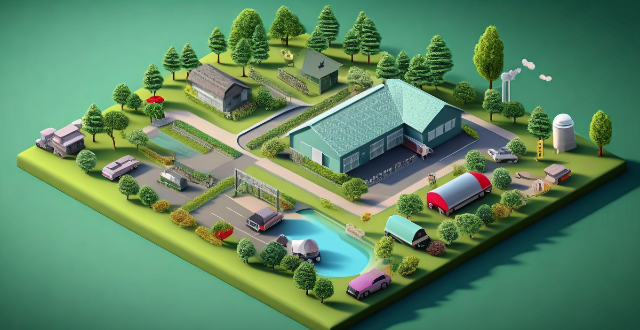
What are the environmental benefits of using a CHEV ?
The text discusses the environmental benefits of using a CHEV (Compound Hybrid Electric Vehicle), which includes reduced greenhouse gas emissions, improved fuel efficiency, lower carbon footprint, conservation of natural resources, and reduced noise pollution. CHEVs combine the powertrains of an internal combustion engine and an electric motor, resulting in fewer emissions and lower fuel consumption compared to traditional gasoline-powered vehicles. They also have regenerative braking systems that capture energy from braking and convert it into electricity for storage in the battery, further improving their overall fuel efficiency. By choosing a CHEV over a conventional vehicle, individuals can reduce their personal carbon footprint and help mitigate the effects of climate change.
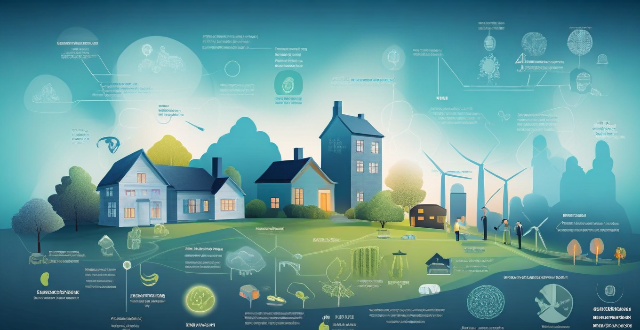
How can IoT help in reducing energy consumption ?
The Internet of Things (IoT) can help reduce energy consumption by providing real-time data and insights into how energy is being used. Smart homes, energy monitoring systems, predictive maintenance programs, optimized resource allocation strategies, and transportation optimization solutions are some ways in which IoT can help reduce energy consumption. By implementing these solutions, we can reduce our carbon footprint and save money on our energy bills.

What is the relationship between climate change, energy consumption, and transportation policies ?
Climate change, energy consumption, and transportation policies are interconnected in complex ways. Reducing energy consumption is critical for mitigating climate change, and transportation policies that promote energy efficiency and alternative fuels can have a significant impact on reducing energy consumption. Additionally, investing in sustainable transportation infrastructure can further reduce greenhouse gas emissions by providing more sustainable options for people to get around.
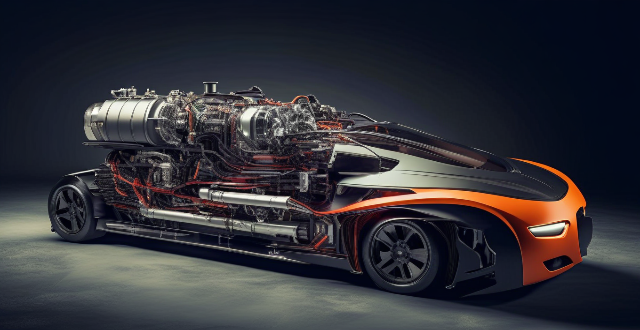
Can I still use gasoline in a gasoline hybrid car ?
Gasoline hybrid cars combine a traditional gasoline engine with an electric motor for improved fuel efficiency and reduced emissions. While they still require gasoline to operate the internal combustion engine, they offer significant savings in fuel costs over time. To maximize fuel efficiency in a gasoline hybrid car, drivers should practice eco-driving techniques, perform regular maintenance, and utilize regenerative braking settings. Gasoline hybrid cars represent a step towards reducing our reliance on fossil fuels and transitioning to cleaner energy sources.

How do ecological design strategies help combat climate change ?
Ecological design strategies are vital for combating climate change. They promote sustainable practices, reduce environmental impact, and create harmonious living conditions that minimize resource consumption. Key strategies include enhancing energy efficiency, promoting renewable energy sources, reducing water consumption, optimizing land use and biodiversity, waste reduction and recycling, carbon sequestration and storage, and community-scale sustainability. By implementing these strategies, we can create more sustainable environments and mitigate the effects of climate change.
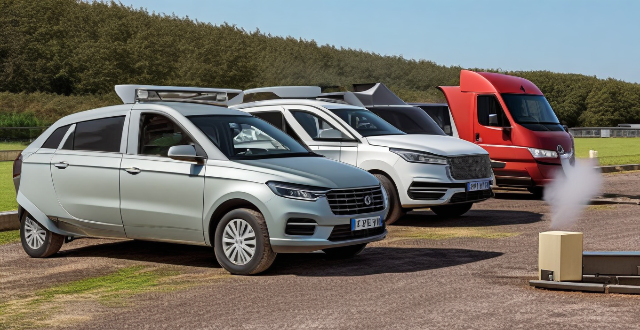
How do fuel vehicles contribute to air pollution ?
Fossil fuel vehicles release harmful gases and particulate matter, contributing to air pollution, climate change, and health issues. Measures to reduce their impact include improving fuel quality, enhancing vehicle efficiency, and promoting alternative transportation methods.